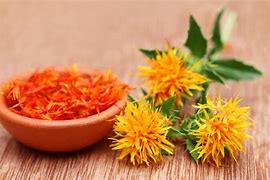Description
Latin Name: Crataegus laevigata
Also Known As: Hawthorne, Haw, May, Mayblossom, and Mayflower
Origin: England and continental Europe
Parts Used:Flowers, leaves, and fruits
Traditional Use and Health Benefits
The humble Hawthorn Berry enjoys a long and enduring history as the herb to strengthen your heart – both physically and emotionally. The berries were a favourite of the Native American Indians as a heart tonic and they also used them for gastrointestinal complaints.
One of the oldest known medicinal plants, Hawthorn was prescribed by the Ancient Greek physician Dioscorides in the first century AD as a remedy for heart problems, and by many prominent herbalists and physicians who came after him.
Hawthorn Berry Benefits
Heart Health
Blood Pressure
Containing a plethora of powerful antioxidants, Hawthorn Berries are known to be potent vasodilators, helping to keep high blood pressure (hypertension) in check. In 2002 a 10 week study was conducted on 38 volunteers who had been diagnosed with hypertension. Half of the subjects were given 500mg of Hawthorn extract and 600mg of the mineral Magnesium daily, while the other half received a placebo.
After 10 weeks, the Hawthorn/Magnesium group showed a significant reduction in diastolic blood pressure, whilst the placebo group did not improve. Additionally, the Hawthorn/Magnesium group reported an improvement in mood as well as lower anxiety levels. Hypertension is both a symptom and a cause of chronic heart failure. Maintaining normal blood pressure levels can play a major role in the prevention of cardiovascular disease.
Heart Failure
Hawthorn Berries have been extensively studied in relation to congestive heart failure, with findings concurring that symptoms such as shortness of breath and tiredness can be dramatically improved. One study found that 900mg daily of Hawthorn Berry extract was as effective at managing the symptoms of congestive heart failure as its pharmaceutical counterpart.
Strongly supporting healthy cardiac rhythm (heartbeat), Hawthorn improves heart cell metabolism and enhances the flow of electrolytes across the cardiac cells. The flavones contained within this berry enhance the function of cardiac enzymes which can improve the heart’s ability to withstand stress.
Angina
Finally, angina sufferers can greatly benefit from this herb. One study found that 100mg of Hawthorn extract taken 3 times a day decreased angina in 91% of the participants as opposed to only 37% in the placebo group. It is thought this effect is down to the ability of Hawthorn to increase blood flow to the heart by dilating both peripheral and coronary blood vessels.
Antioxidant Powerhouse
Whilst Hawthorn Berries are most notorious for their contribution to heart health, running a close second are the phenomenal amount of powerful antioxidants they contain. They are especially high in oligomeric procyanidins (OPCs) and it is this particular class of antioxidants that seem to be responsible for Hawthorn’s many health benefits. They enhance the antioxidant activity of vitamins A, C and E, improve circulation, strengthen capillaries, reduce inflammation, boost the immune system, protect against atherosclerosis, are effective antioxidants for the brain and nerve tissue and enhance connective tissue health. They have also been shown to reduce histamine production, making OPCs useful in the treatment of allergies.
Digestive Health
Hawthorn Berries stimulate bile and gastric secretions, aiding in the digestion of stagnant food in the GI tract, especially that which is rich in fats or protein. They also contain various organic compounds that interact with gut flora to improve the digestion of nutrients.
Typical Use:
Hawthorn Berries 1-2 tsp per cup boiling water up to 3 times a day Herbal Tincture 2-4ml tincture up to 3 times a day Or as recommended by a herbal practitioner. Hawthorn Berry Powder 1 – 2 tsp added to smoothies, juice or mixed with water.
Folklore and History
The Hawthorn tree is steeped in Celtic mythology and history, with many believing that the trees were inhabited by the Faery Folk. One particular story is that of one “Thomas the Rhymer”, a Scottish mystic and poet of the thirteenth century. It is said he met the Faery Queen by a Hawthorn bush from where she led him on a brief sojourn into the Faery Underworld. Upon returning from his adventure he found he had been absent for seven years!
However, Britain’s most famous Hawthorn is our very own Holy Thorn Tree here in Glastonbury. Legend tells that upon arriving on these Isles, the uncle of Jesus, Joseph of Arimathea, climbed Wearyall Hill and drove his staff into the ground. It then burst into life, growing into a thorn tree which unusually flowers twice a year – once in May and then again at Christmas. Whilst the original tree was cut down in the civil wars of the 17th century, many cuttings have survived and are thriving all around Glastonbury.
Constituents
Contains bioflavonoids, vitexin, quercetin, and hyperoside, crataegin, carotene, flavonoids and sugars
Precautions:
Hawthorn Berry side effects are uncommon and only a few cases of mild nausea, dizziness, sweating and skin rashes have been reported. Can interact with prescription medications. Hawthorn may affect blood pressure, and should not be taken with medications for high blood pressure, including beta-blockers and calcium channel blockers, medications for “male enhancement” (many of which are based on blood vessel dilation and increasing blood flow), and medications that increase blood flow to the heart. Additionally, people taking digoxin should not take Hawthorn. Not recommended for pregnant or breastfeeding women.
















Reviews
There are no reviews yet.